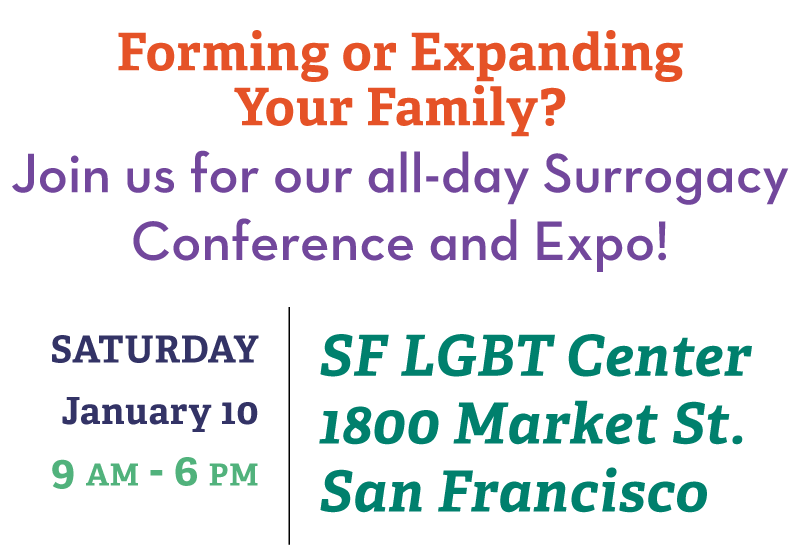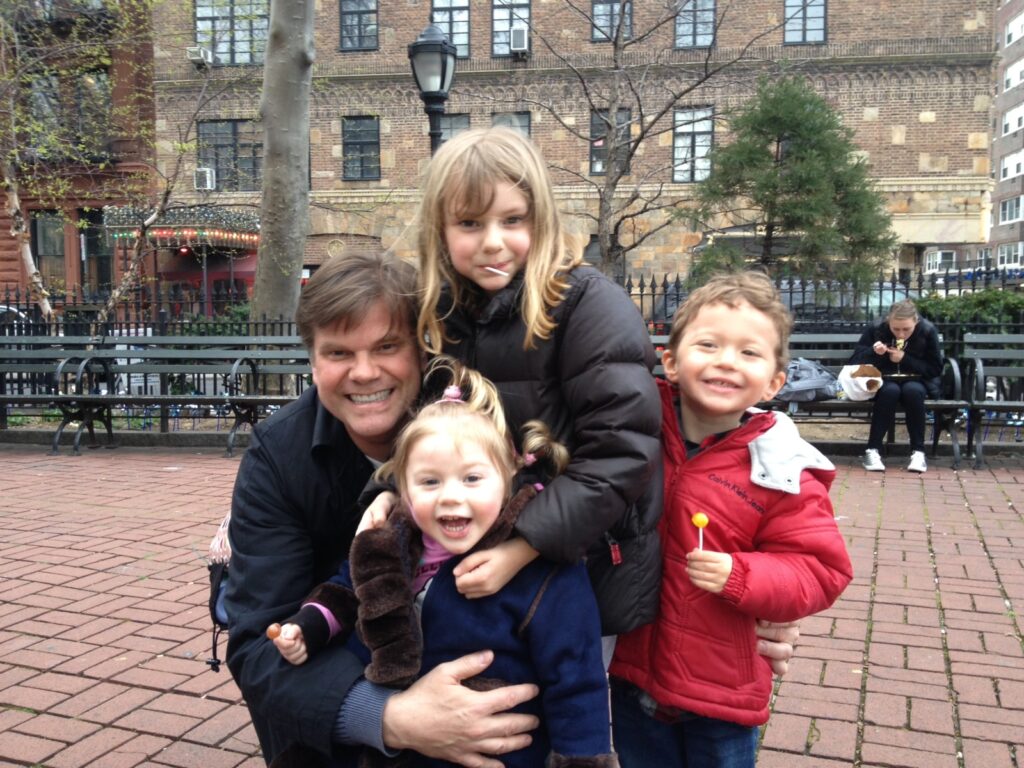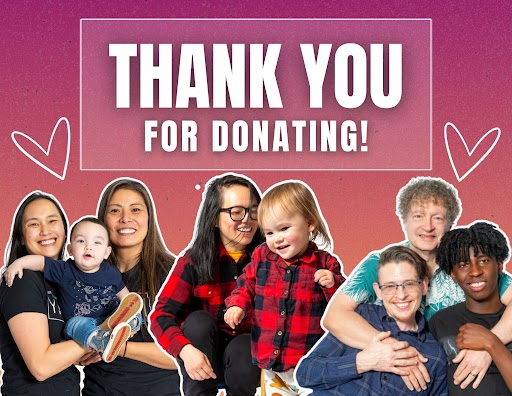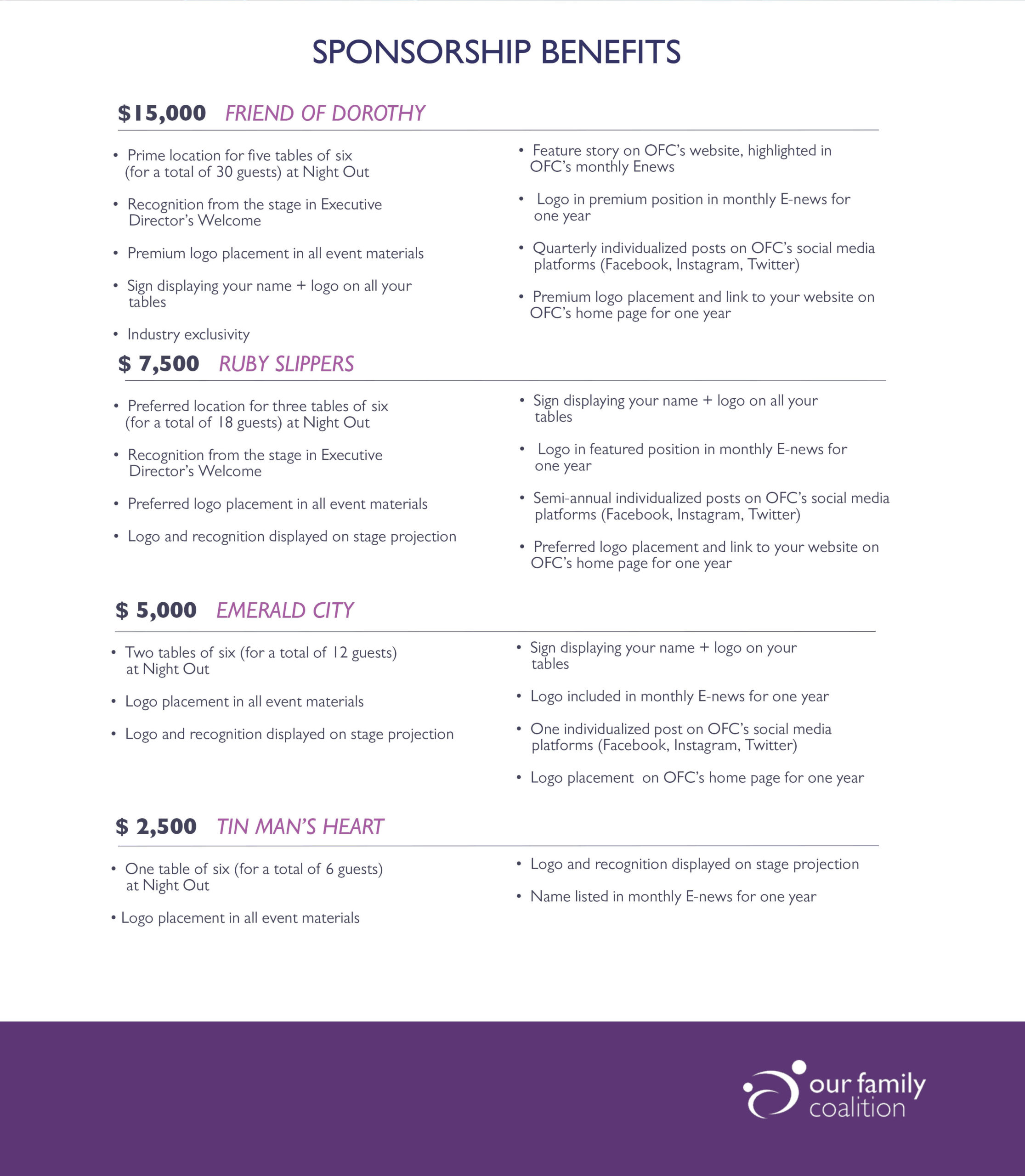by Anthony M. Brown, Board Chairman of Men Having Babies
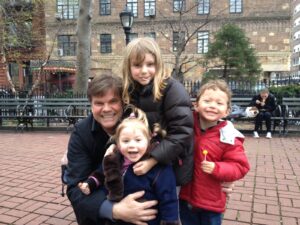 When my daughter documented her family tree for a class project, there were so many branches that it covered an entire poster board. My heart soared: It was a family forest! I’m called “Papa” by three amazing kids. My son is the biological child of my husband; we had him 4 years ago with the help of a gestational surrogate. I adopted him and he lives with us. My daughters, now 8 and 3, live with their mothers in the same neighborhood as our family. I call them my daughters because I am their biological father through sperm donation, but the truth is that I am not their parent.
When my daughter documented her family tree for a class project, there were so many branches that it covered an entire poster board. My heart soared: It was a family forest! I’m called “Papa” by three amazing kids. My son is the biological child of my husband; we had him 4 years ago with the help of a gestational surrogate. I adopted him and he lives with us. My daughters, now 8 and 3, live with their mothers in the same neighborhood as our family. I call them my daughters because I am their biological father through sperm donation, but the truth is that I am not their parent.
This is a critical distinction that donor dads must make. I am not a coparent with my daughters’ mothers. But that doesn’t mean that I do not have a reciprocally fulfilling relationship with them, it just means that the major life decisions that relate to my girls are made by their mothers, the two amazing women who taught me how to be a dad. I am not sure whether we picked them, or they picked us, but from the moment we met at an equality fundraiser, we instantly hit it off. This wonderful family life didn’t always seem possible for me. In the ’70s and ’80s, as a closeted teenager and young man, I would have been in denial if you had told me that one day I, too, would have three children. Or perhaps it would have been a relief; an affirmation that I could change my orientation. I desperately didn’t want to be gay and, after running from my true self for what seemed to be ages, I did what many young people who grew up in my era did: I tried to end my life. My parents found the bottle of pills I had taken and, on the advice of our family doctor, walked me around the backyard of our house for hours attempting to allow the effects of the pills I had taken to wear off. I just wanted the pain to stop, but my parents wanted their son and fought for my life. I am thankful every day that they did.
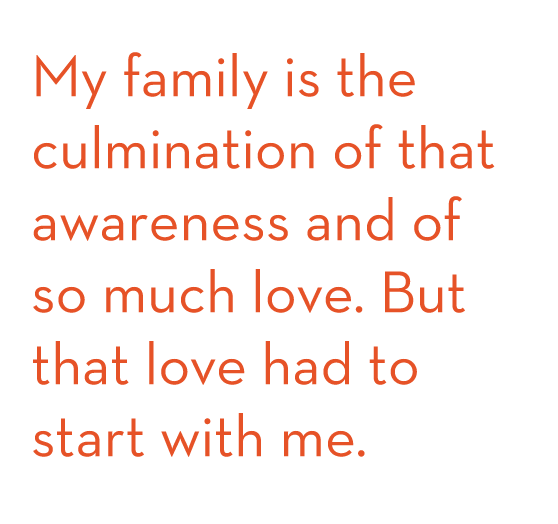 After that moment, I knew my parents loved me and, eventually, with much soul searching and self-acceptance, I learned that I could be happy… and gay. Once that switch was flipped, life turned on. My family is the culmination of that awareness and of so much love. But that love had to start with me. I don’t think anyone who doesn’t truly love themselves could be a donor dad. It requires patience, responsibility and, most of all, faith. I had to have faith that my daughters’ moms would allow me to have a relationship with them. They also had to have faith that I would be a man of my word and surrender my parental rights to the non-biological mother. We all had to have faith that we would be able to conquer whatever parenting trials would come our way.
After that moment, I knew my parents loved me and, eventually, with much soul searching and self-acceptance, I learned that I could be happy… and gay. Once that switch was flipped, life turned on. My family is the culmination of that awareness and of so much love. But that love had to start with me. I don’t think anyone who doesn’t truly love themselves could be a donor dad. It requires patience, responsibility and, most of all, faith. I had to have faith that my daughters’ moms would allow me to have a relationship with them. They also had to have faith that I would be a man of my word and surrender my parental rights to the non-biological mother. We all had to have faith that we would be able to conquer whatever parenting trials would come our way.
And that faith is constantly tested. When my first daughter was born, my husband and I would babysit her about once every other week and, once she was old enough, have sleepovers once a month. I remember getting a call from one of her mothers after we returned her from a sleepover right after the adoption hearing had taken place—a hearing where I formally surrendered my parental rights. She was asking about a small burn mark on my daughter’s leg. Neither my husband nor I could recall anything that could have caused it, but then I remembered that at one point over the weekend we were all in the kitchen. I was holding her when I turned to my husband and brushed up against an open toaster door. I didn’t think it had touched her, and she didn’t cry, so I thought nothing of it at the time. When I realized she had gotten burned, I was terrified that we would not be allowed to see her again. I went through a short-lived freak out until the moms calmed me down, reassuring me that it happens to everyone (she had even fallen off the changing table a couple of times under their watch).
It is moments like that when you truly understand perspective. But the one person that was most tested by my being a donor dad was my husband. He often felt like the odd man out. While I was busy going to clinics and running out of events because “mom was ovulating,” he was often left alone and feeling out of touch with the whole process. If I could have done anything differently, I would have made sure that he was more involved and included him more in the process. The reality, now that the kids are older, is that all three of them refer to my husband as “Daddy” and to me as “Papa.” When asked, they are the first to tell you that they have “two mommies and two daddies.” This, to me, is one of the coolest things ever.
Because we are honest with all three kids about where they come from, they feel special. They understand that their mommies and daddies loved them so much that they worked together to make our family a reality. If I can offer any new perspective on being a donor dad, it is that anything is possible with honesty, careful preparation, and love. You can have the family of your dreams, no matter what it looks like.